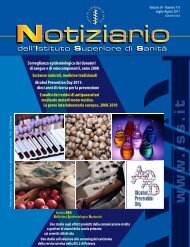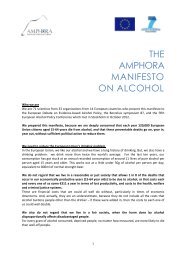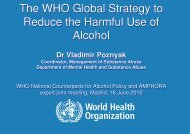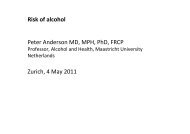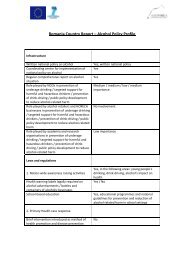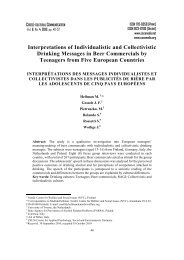Download full text - amphoraproject.net
Download full text - amphoraproject.net
Download full text - amphoraproject.net
Create successful ePaper yourself
Turn your PDF publications into a flip-book with our unique Google optimized e-Paper software.
data on the sale of these products, which could possibly support such claims, are notavailable.As mentioned, Slovenia has already introduced several effective tobacco control measures.Nevertheless, new or updated measures should be introduced as soon as possible tocomplement the existing package of tobacco control measures. It is particularly necessary tofurther substantially increase the prices of tobacco products by imposing comparable andharmonised excise duty rates on all tobacco products, to completely ban tobacco advertisingand displays at points of sale, to ban sale of flavoured tobacco products and to reduce theavailability of tobacco products by introducing of licensing tobacco retailers and limitation ofthe number, location and types of tobacco retailers.3.2 Universal preventionActivities in the field of universal prevention include all interventions and programmesdesigned for and aimed at the entire population or its subgroups (e.g. individual localcommunities, schools, etc.). It is assumed for each individual in this population that he or shehas the same level of risk of drug use as others, and that this individual can gain the samebenefits from prevention programmes as other members of the group. Universal preventionprogrammes are usually implemented in large groups, without a preliminary analysis of thecharacteristics of the target population (EMCDDA 2011). Children and adolescents remainthe main target population for universal prevention measures aimed primarily at preventingrisk behaviours that could lead to psychoactive substance abuse.49Drug-related prevention programmes and young people: focus group analysisBranka Božank, Nina Pogorevc, Manca RebulaRegional Institute of Public Health Ravne conducted focus groups among high-schoolstudents in 2011 and 2012, where Institute workers talked with students about addictionprevention programmes to find out whether young people know such programmes, whatexperience they have, what contents they would prefer in a programme, who shouldimplement these programmes, what they think about the effectiveness of such programmesand of peer education. The Institute conducted 6 focus groups which in total comprised 28students between 15 and 19 years of age. The most important findings are presented below.Addiction prevention programmesYoung people recognize the following as addiction prevention programmes: different (media)preventive actions, lectures and presentations given by healthcare workers in the frameworkof health education, lectures given by police officers about road safety, and other lecturesand workshops conducted by various professionals (nurses, police officers, doctors andother professional workers) in both primary and secondary schools. In addition, somestudents also mentioned movies, posters and books on this topic, and programmes in theframework of the Project Learning for Young Adults programme.



